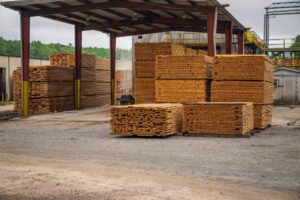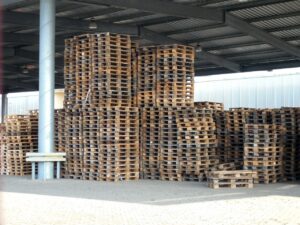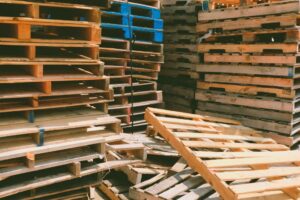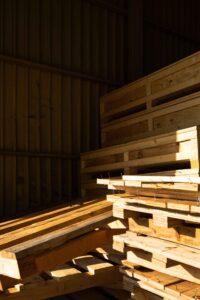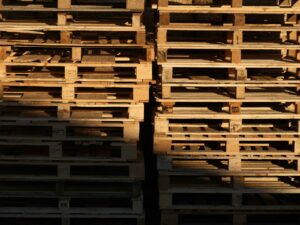Contemporary design is all about simplicity, balance, and natural expression. Architects and designers today are turning toward materials that offer both aesthetic refinement and environmental responsibility. Among these, Smooth Surface Natural Colour Bamboo Boards have emerged as a preferred choice for modern interiors. These boards, made from natural bamboo mats processed with advanced resin and lamination technologies, bring the warmth of bamboo and the precision of engineered material into perfect harmony.
What Are Smooth Surface Natural Colour Bamboo Boards?
Smooth Surface Natural Colour Bamboo Boards are engineered bamboo panels manufactured from woven bamboo mats impregnated with phenol-formaldehyde (PF) resin and pressed under high temperature and pressure. The process results in dense, durable boards that retain the natural golden-brown color of bamboo while offering an exceptionally smooth surface finish suitable for premium design applications.
According to product data, these boards typically feature:
Thickness: Around 4.0 mm and higher for panel-grade applications
Density: Approximately 850 kg/m³
Surface Finish: Naturally smooth and fine-textured without visible fibers
Color: Retains the authentic tone of bamboo, achieved without artificial dyes
Resistance: Moisture, termite, and fungus resistant
Mechanical Properties: Excellent impact resistance and dimensional stability
This combination of aesthetic appeal and performance has made smooth natural bamboo boards a leading choice for contemporary design projects where sustainability and finish quality are equally important.
Key Properties of Smooth Surface Natural Colour Bamboo Boards
Natural Smooth Finish
These boards are factory-pressed to achieve a smooth, even texture. This eliminates the need for heavy surface sanding and allows direct polishing or coating, reducing finishing time during installation.Consistent Natural Colour
The boards maintain the natural tone of bamboo, offering uniform color and minimal variation. This natural tone complements minimalist, Scandinavian, or Japanese-inspired interiors where subtlety and warmth define the aesthetic.High Density and Strength
With a density of about 850 kg/m³, the boards offer strength and durability similar to hardwood panels but with a lower environmental footprint.Moisture and Termite Resistance
The phenolic resin impregnation process gives the boards strong moisture tolerance, making them suitable for interiors exposed to moderate humidity. The boards are also naturally termite-proof and fungus-resistant.Dimensional Stability
These boards remain stable in size and shape even under temperature and humidity fluctuations, making them reliable for large-scale installations.Eco-Friendly Manufacturing
Bamboo is a rapidly renewable material, harvested every 3 to 5 years. The use of bamboo instead of hardwood reduces deforestation and supports sustainable construction practices.
Applications in Contemporary Design
1. Wall Panels and Cladding
The natural color and smooth texture of bamboo boards provide a clean, elegant finish for modern interiors. They are commonly used for decorative wall cladding in living rooms, offices, and hotels.
2. Ceilings and Soffits
Lightweight and dimensionally stable, these boards are ideal for ceiling panels in both residential and commercial spaces. They add a warm tone and uniform texture to large surfaces.
3. Furniture Panels
Bamboo boards are often used in making shelves, cabinets, and furniture fronts. Their smooth finish allows easy painting, staining, or polishing for custom looks.
4. Acoustic and Decorative Elements
Because of their density and acoustic dampening qualities, these boards are suitable for auditoriums, recording studios, and conference rooms as decorative acoustic panels.
5. Interior Partitions and Accents
They can be applied in modular wall systems or partitions to introduce natural texture and warmth to open spaces without compromising modern aesthetics.
Advantages of Smooth Surface Natural Colour Bamboo Boards
Elegant Aesthetic: Natural golden tone and even texture fit modern minimalist design.
Durability: High impact resistance and structural stability extend service life.
Sustainability: Made from fast-growing bamboo, reducing reliance on slow-growing hardwoods.
Easy Maintenance: The smooth surface resists dust and is easy to clean and polish.
Versatility: Compatible with various finishes such as matte, gloss, or natural polish.
High Workability: Can be machined, cut, and bonded using standard carpentry tools.
Thermal and Electrical Insulation: Adds comfort and safety in interior environments.
Limitations or Considerations
UV Sensitivity: The natural bamboo tone can darken or lighten with prolonged sunlight exposure; UV-protective finishes are recommended.
Edge Sealing: Proper sealing is needed to protect edges from moisture.
Surface Hardness: While strong, the surface may be prone to scratches under heavy abrasion if not coated properly.
Cost Factor: Higher than conventional laminates, but justified by longevity and sustainability.
Limited Curvature: The boards are semi-rigid and not suited for tight-radius curved installations.
Frequently Asked Questions (FAQs)
Q1: How are smooth surface bamboo boards different from traditional bamboo panels?
Smooth surface boards undergo additional surface pressing and finishing, resulting in a finer texture suitable for high-end interior applications.
Q2: Can these boards be used in bathrooms or kitchens?
Yes, the boards are moisture-resistant, but proper sealing and backing material are recommended for long-term use in humid environments.
Q3: Can the boards be painted or polished?
Yes, the smooth surface accepts a wide range of finishes, from clear lacquer to matte and glossy coatings, without additional surface preparation.
Q4: Are bamboo boards environmentally friendly?
Yes, bamboo regenerates quickly and is considered one of the most sustainable raw materials. The manufacturing process also minimizes waste.
Q5: What maintenance is required?
Regular dusting and occasional polishing keep the boards in good condition. Avoid prolonged exposure to water and sunlight.
Q6: Are they suitable for outdoor use?
These boards are primarily designed for interior use. For exterior applications, weatherproof coating and protective sealing are essential.
Q7: Can the boards be cut or drilled using normal tools?
Yes, they can be worked with standard woodworking tools, including saws and drills, without requiring special equipment.
Conclusion
Smooth Surface Natural Colour Bamboo Boards represent the perfect blend of natural elegance and modern engineering. Their refined texture, consistent tone, and sustainable origin make them a top choice for contemporary architects and interior designers. Whether used as wall panels, ceiling finishes, or furniture elements, these boards transform spaces with a natural sophistication that aligns with today’s eco-conscious design principles.
By choosing natural bamboo boards, designers can achieve aesthetic warmth, structural durability, and environmental responsibility in one seamless material — an ideal solution for the future of modern interiors.


